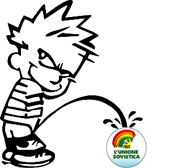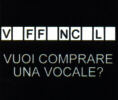I would like to imagine...
I would like to imagine with what new traits despotism could be produced in the world.
I see an innumerable crowd of like and equal men who revolve on themselves without repose, procuring the small and vulgar pleasures with which they fill their souls.
Over these is elevated an immense, tutelary power, which takes sole charge of assuring their enjoyment and of watching over their fate. It is absolute, attentive to detail, regular, provident, and gentle. It would resemble the paternal power if, like that power, it had as its object to prepare men for manhood, but it seeks, to the contrary, to keep them irrevocably fixed in childhood … it provides for their security, foresees and supplies their needs, guides them in their principal affairs…
The sovereign extends its arms about the society as a whole; it covers its surface with a network of petty regulations—complicated, minute, and uniform—through which even the most original minds and the most vigorous souls know not how to make their way… it does not break wills; it softens them, bends them, and directs them; rarely does it force one to act, but it constantly opposes itself to one’s acting on one’s own … it does not tyrannize, it gets in the way: it curtails, it enervates, it extinguishes, it stupefies, and finally reduces each nation to being nothing more than a herd of timid and industrious animals, of which the government is the shepherd.
Alexis de Tocqueville
Couldn't have said it better myself. This is exactly what we talked about on the plane. Journalism=same old pattern, if you try to think for yourself and outside the box, your thoughts are constantly supressed until you learn to think like the rest. Then it´s all machine factory from there. The same recipe. Applaus. Until you one day meet yourself in the mirror...
Signy Eika Klempe
...and you might not like what stands in front of you, looking right back at you. But if you don't have anything different in your mind, in your "box", if no other vision, paradigm, ideas ever wondered in there then what you are likely to fall into is a sterile malaise of our soul. Since there is no other path you can follow but the same one over and over again therefore your hope to change the situation will be as absent as your knowledge of the pattern you're in.
Alexis de Tocqueville wrote those words more than a century ago, he forseen the risk of betting on a bloated governemnt, that everything embraces and everything regulates, so that we can live happy and without a worry in the world like the donkey-kids in Pinocchio.
Peter Høeg once said that the failure not necessarily must presents itself like an abrupt fall, it is sometimes more common to be like a slow descent to resignation. And so apparently seems to be the fate of the western democracies, softened, clogged and bridled by the immense weight of the modern bureaucracy that steadily follows the mother of all directives: politically correctness.
Truth, facts are of no meaning and no use to it.
In the previous centuries, the "government" was maybe going to tax you heavily, maybe to finance wars, maybe to finance buildings or road constructions, but not a lot of services it used to provide to its subjects. Today, we might be told and used to consider ourselves luckier due to the fact that a miriad, an umbrella of services are covering all our needs, from cradle to grave, so that we don't have to do anything, neither worry nor prepare and learn how to act in case the problem arises.
Lucky? Not exactly. Besides the demographic argument and the fact that our pension system, being comparable to a big "Ponzi scheme" will inevitably fail though leaving its users in a condition of not receiving the service and not be used nor prepared to provide for themselves together with the inexistance of the structural inability of finding this help elsewhere.
And here lies the heart of it, this "structural inability".
If the government set itself to provice all these services then it will ask for the money to its very users, hence our lives will gradually be conducted to a greater dependance of the individual on the provider, but also due to the higher cost of life, a cost that is inevitable cos we pay in advance for all the services that we might or might not use, the families will become smaller and smaller, the old age is cared for by the provider [government], not anymore by the rest of the family.
In the previous centuries, the sons and grandsons would have cared for the old age of the person. Today, statistically speaking there are no sons and grandsons to do that, or they are too few and then again, the care has been already paid for.
So why then the old system would be inherently better? After all, what we need to do is just making the new system work. The heart of the problem in my opinion lies in the fact that the old family was indeed a strong organism, and was also naturally forming real bond with the other families of the community, village, town, ....
This created an extraordinary strength that widthstood an immense and never ending sequence of wars, invasions, deaseases, pestilences, ...
Even in case of a major war, when the governement was indeed wiped off, the substructure: the families, the communities were nonetheless going on.
Today, we are more and more dependent with a direct link to the government whilst the family and community cohesion is less and less. In case of a major war, in case of this superstructure being wiped off, the life as we knew it would cease to exist, we would have societal collapse.
But we don't need to imagine such gruesomes scenario; petty criminality is also a good example. Such a society would not be able to face an individual smart new organism that enters the "environment", such a petty criminal has no need or ties to the government, it moves freely, has no restrains.
Margaret Thatcher once said: "There is no such thing as Society, there are individuals and there are families".
This sentence might appear at odds with what I just said, because how can there not be a thing called Society if I used it and criticized it several times in the previous argument?
The point of the sentence is that Society is a non-entity. It is, to use a word dear to our century, a virtual concept. We built everything on the idea of society, and being society something that has no essence, inevitably causes the system to have an inherent weakness mainly due to the depersonification of the human being.
It's a centralization of everything, every need and service to a central power. Once this central power is for any reason unable to perform we'll have herds of people unable to live working lives.
The central power, the government should not consider its subjects (besides the fact that in my opinion it should not consider them subjects in the first place) a community, a society, should not try to regulate or legislate for anything else than individuals and families, doing so will inevitably provoke problems and injustice.
If you make a law to give special, therefore different treatment to, say a religious group or an ethnic minority, you will end up treating people differently and unjustly and once you go down this road, it never leads you to a happy place.
Everybody should be exactly the same in front of the law and the government should never meddle with communities (a "community organizer" is just another word for: I'm the government and I'll lay out special treatment for special interests), they tend to regulate themselves due to the fact that a community is just the sum of the individuals and family it is formed with.
"He who is merciful with the cruel, will end-up being cruel to the merciful"
Kohelet Rabba 7:16
Labels: English, Philosophy, Politics



















1 Comments:
This comment has been removed by a blog administrator.
By Anonymous, at 24 January, 2010 08:11
Anonymous, at 24 January, 2010 08:11
Post a Comment
<< Home